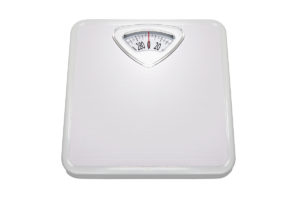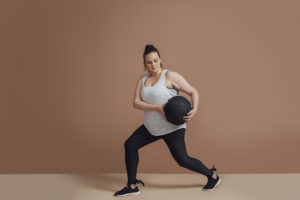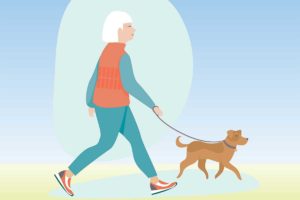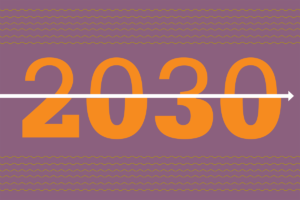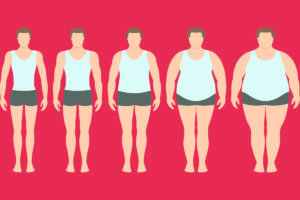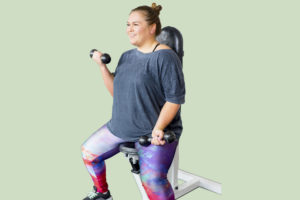Weight Management/Weight Loss
Weight Training for Women Over 40
Losing muscle and gaining fat are expected for women over 40, but the right resistance training can positively affect body composition.
Sharing Weight Loss Data With Coaches Helps
According to a recent study, people achieve better results when sharing weight loss data, like weight, eating and exercise, with a coach.
Lower Weight in Young Women ≠ Higher Fitness
A common assumption is that people who weigh less are more fit. For younger adult women, however, this may not be the case.
Weight Bias May Be Declining
More people share the viewpoint that those with obesity are being blamed for the disease, rather than getting medical help to manage it, according to research.
Fit or Fat Research Update
A recent research review supports the value of fitness, regardless of weight loss outcomes, for people who are overweight or have obesity.
HIIT Neuromuscular Training Helps Inactive Women
To stimulate inactive or overweight clients’ programming, try blending high-intensity interval training and functional resistance training.
How to Lose Weight Without Losing Bone
Wearing a weighted vest may help older adults to successfully lose weight while protecting bone quality and density.
Weight Loading and Weight Loss
Could the concept of homeostasis be applied to weight? Researchers wanted to learn whether carrying a weighted load throughout the day reduces body fat.
Game On for Weight Gain
According to a report in JAMA Paediatrics, spending too much time in the gaming world could be bad news for body composition down the road.
Least Fit Have Most Challenge With Weight Loss
Researchers found that people who were very unfit when they started a behavioral weight loss program lost less weight than those who were more fit.
Weight Bias in the Health and Fitness Industry
In an industry that strives to help people improve health and fitness, there is still a significant amount of judgment and stigma toward people with obesity.
Steps and Weight Loss
New research shows that, while increasing steps to 4,400 steps per day enhances longevity (and walking more does have numerous health benefits), adding steps without increasing intensity or changing other lifestyle habits may not lead to weight loss.
America’s Weight Status
By 2030, approximately half of the U.S. adult population will be obese, and a quarter will have severe obesity, based on body mass index data.
Helping Teens With Obesity
Did you know that adolescent obesity has been linked to depression, anxiety, suicidal thoughts, poor self-esteem, attention deficit hyperactivity disorder, aggressive and destructive behavior, internet addiction, binging and purging, and other severe emotional outcomes (Reinehr 2018)? Emotional issues are often attributed to bullying and weight stigma.
Top Fitness Trend in China and South America
The number-one fitness trend identified in both China and South America is the inclusion of exercise in dietary weight-loss programs, according to ACSM’s
2020 Worldwide Survey of Fitness Trends. This could be the fitness industry responding to rising rates of overweight and obesity. In North America, exercise for weight loss has declined as a trend, superseded by health and wellness coaching.
Average BMI of Americans Is Increasing
Fitness professionals have an opportunity to help more Americans who are trying to improve their health. The population’s average body mass index is increasing, even as more Americans are trying to lose weight, according to findings published in JAMA Network Open.
Resistance Training and Weight Loss
Did you know that resistance training does much more than build strong muscles and bones? Research in the past few years has confirmed that lifting weights changes your metabolism in ways that improve health and well-being. That’s good news for people with type 2 diabetes, high blood pressure, obesity and high cholesterol levels.
An Attitude of Gratitude
Cynthia Walker was struggling. Although she’d been trying to lose weight for years, it just seemed like the odds were stacked against her.
“At age 42, she had a TIA (transient ischemic attack) along with high blood pressure and high cholesterol levels,” says trainer E. Faith Bell. “Then, 11 years ago, she was diagnosed with breast cancer. At 4 feet 9 inches tall, she weighed 176 pounds.”
More Strikes Against Eating Too Much Salt
A duo of recent studies are further strengthening the case against dumping high amounts of salt into restaurant fare and packaged processed foods.
Could Gaming Help People Eat Better?
As we become better informed about the potential pitfalls of too much screen time, findings in the Journal of Behavioral Medicine suggest that sitting in front of a computer to play a diet-focused game may drive people to trade in their candy for cauliflower!



